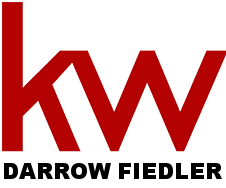Remote property management has become increasingly common in recent years, driven by technological advances and changing work patterns. Property owners and managers no longer need to be physically present at their rental properties to oversee operations effectively. Instead, they can manage properties from afar with the right strategies and tools.
Here are some essential tips on how to succeed in remote property management.
Embrace Technology:
The foundation of successful remote property management is embracing technology. Give tenants several means to contact you, such as email, phone, and online portals, so they may report issues and ask you questions.
Screen Tenants Thoroughly:
Since you won’t be able to interact with tenants in person as frequently, it’s crucial to have a rigorous tenant screening process in place. Conduct comprehensive background and credit checks, verify references, and ensure prospective tenants meet your rental criteria. Reliable tenants can reduce the likelihood of issues requiring on-site attention.
Hire Local Help:
While you may manage your properties remotely, having a network of local professionals to assist when needed is essential. Build relationships with local contractors and property management companies.
Effective Communication:
Clear and regular communication with tenants is key to remote property management success. Give tenants various ways to contact you, including email, phone, and online portals, so they can report problems and ask you questions.
Automate Rent Collection:
Automating rent collection ensures a steady income stream and minimizes late payments. Use online rent payment platforms that allow tenants to make payments electronically.
Regular Inspections:
Periodic property inspections are essential for identifying maintenance issues and ensuring tenants comply with lease agreements. While you may not be able to conduct these inspections in person, you can hire a local property manager or inspector to perform them on your behalf. Be sure to communicate the inspection schedule with your tenants.
Emergency Preparedness:
Remote property management requires being prepared for emergencies. Create a detailed emergency plan with contact information for local authorities, contractors, and maintenance personnel. Share this plan with your tenants so they know what to do in emergencies.
Financial Management:
Use accounting software or apps to stay on top of your property’s finances remotely. Monitor expenses, track income, and set a budget for maintenance and repairs.
Legal Compliance:
Know the laws and rules that apply to municipal, state, and federal property management. Non-compliance can lead to legal issues and penalties.
Regular Reviews and Updates:
Periodically review your remote property management processes and adjust them as needed. Technology and best practices evolve, so staying up-to-date is essential for continued success.
Succeeding in remote property management is achievable with the right strategies and tools. By embracing technology, maintaining effective communication, building local partnerships, and staying proactive, property owners and managers can efficiently manage their rental properties from afar while ensuring tenant satisfaction and profitability.

